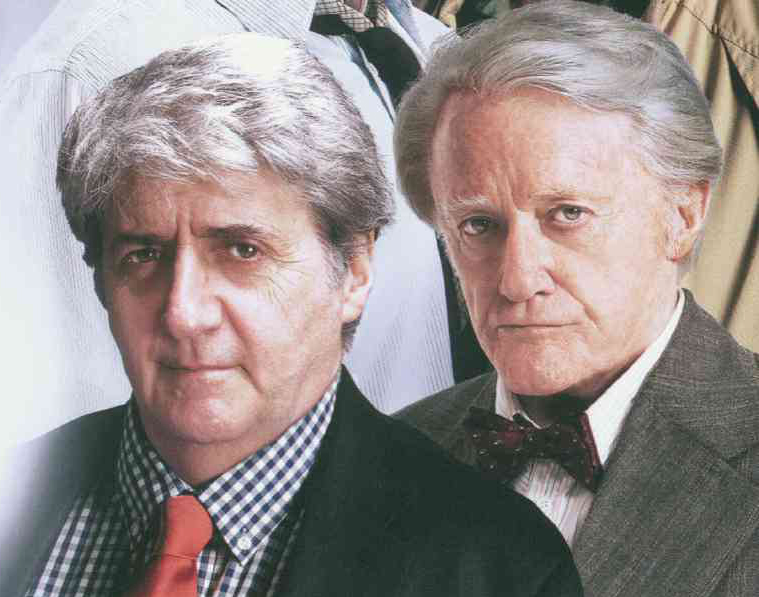We would usually rush out of the theater immediately after watching a performance to avoid getting stuck in the mad rush for the exit door. But, Christopher Haydon’s West End revival of Reginald Rose’s “Twelve Angry Men” at the Garrick Theatre so moved us that we stayed in our seat to “soak” it all in after the curtains had closed.
Rose’s taut, single-set drama—about a seemingly cut-and-dried case involving a 16-year-old black boy accused of killing his abusive father, and the 12-man jury deliberating over sending him to the electric chair—may be 60 years old, but its thematic pertinence continues to reverberate in the age of social media.
We read the play many years ago when we were looking for scenes to assign to our theater-workshop students, but its musings on sin and the concepts of guilt and innocence resonate even more when they’re feelingly delivered by insightful actors—in this case, Tom Conti, Jeff Fahey, William Gaminara and Oscar-nominated veteran Robert Vaughn (“Young Philadelphians,” “The Man from U.N.C.L.E.”).
As Juror 8, Conti—who, along with Judi Dench, was recently voted the Most Popular Actor in the West End in the last 25 years—is the only one unconvinced about the teenager’s guilt, not so much because he doesn’t think the boy committed the dastardly deed, but because he sees reasonable doubts that punch holes in the case and turn the “guilty” verdicts around—but, not if stubborn Jurors 3 (Fahey) and 10 (Gaminara) can help it!
Yes, the boy is black, was seen holding a knife, and had an unverifiable alibi—but, “What if he’s innocent?,” asks Juror 8. “Prejudice obscures the truth.” Are they willing to condemn a “possibly” innocent man just because it “looks” like he’s the guiltiest party?
It certainly doesn’t help that they’re stuck in a stuffy room with a broken electric fan on the hottest day of the year—if they don’t come up with a unanimous verdict because of a split in opinion, it may lead to a retrial. But, if the boy is guilty, they will have done a major disservice because, as they say, “Justice delayed is justice denied.”
Death sentence
There’s so much at stake for the accused, because a guilty verdict comes with a mandatory death sentence. The ensuing scenes, as well as the jury’ ever-changing perspectives, reveal the jurors’ contrasting biases and convictions—and bring out the best and worst in them!
The story struck a chord with us because, in the age of the Internet, we’re constantly bombarded with controversial topics that are promptly judged at face value—and, most often, we convict people based on the “immediate” but limited information we get. It’s a provocative concept that underscores how every “trendingly” relevant issue is being assessed these days!
The enduring production was first staged as an Emmy-winning TV play directed by Franklin Shaffner (“Papillion,” “Boys From Brazil”), and was later adapted for the big screen by lead actor-producer Henry Fonda and Oscar-nominated director Sydney Lumet, who won plaudits for effectively maximizing the sense of claustrophobia in the jury room.
As the play’s production notes reveal, the story of “Twelve Angry Men” began in 1954 when the TV writer was called for jury duty. Rose was overwhelmed by his sudden realization that he was responsible for the life-and-death fate of a man he didn’t know!
Five years before his death in 2002, Rose vividly recalled, “It was a solemn setting in a big, wood-panelled courtroom, with a silver-haired judge. It knocked me out! I was on a jury that got into this terrific and furious eight-hour argument!”
The playwright was interested in how much the outcome of a case depended on the assumptions and prejudices of the jurors—and his play skillfully reflects exactly that!
